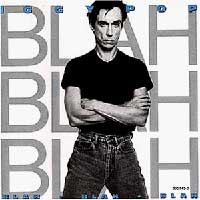Bowie hearts Iggy.
This we already know. David Bowie’s musical life was changed when he first heard the Stooges perform in the early “Ëœ70s and entered into a long friendship with Mr. Osterberg, a/k/a Iggy Pop. A few years and failed albums later, Bowie tracked the struggling, newly sober Pop down in a sanitarium, er, “hospital”, and convinced him to begin a solo career after the Stooges’ implosion. The happy couple relocated to Berlin and recorded some of the most important albums in rock (and New Wave) history; Bowie’s “Low”, “Heroes” and “Lodger” and Iggy’s “The Idiot” and “Lust for Life”. After that, Iggy went his own way and lost the plot. Ever seen the movie “Velvet Goldmine”? It was sorta like that, but not really.
As Iggy floundered in the early 80s, Bowie, well”¦you know. “Let’s Dance” was humungous, if safe, and Dave also had a huge hit with “China Girl”, a song co-written and originally recorded by”¦Iggy Pop. Bowie wanted Iggy to have some royalty money, so the story goes, so David recorded the song as sort of a favor. When it became a Top Ten hit, Bowie threw the money on his already teetering pile and moved on, while Iggy probably paid his rent by its due date for the first time.
Bowie was flush with cash and he wanted to help his old mate out. So together, Bowie and Pop collaborated on what was meant to be Iggy’s big Top 40 breakthrough album, Blah Blah Blah. The idea was to create an accessible album that would finally let Iggy live comfortably, and since Bowie was at his highest commercial apex since the Ziggy days, he was the man to do it.
“Cry for Love” was the first single and was so bland, AOR-by-numbers and inconsequential, I’m not even going to bother posting or discussing it. Bleh. Moving on. Trust me here.
The second single was a remake of “Real Wild Child (Wild One)”, a song first made famous by Jerry Lee Lewis. You know this one, since it’s been used in so many commercials years after its release, but at the time, it failed to chart. MTV played it a bit here and there, but it wasn’t anywhere near a hit. Strike two for Blah Blah Blah.
The albums’ third attempt is the real reason I’m writing this post — I absolutely adore “Isolation”, because it’s the most pure sounding Bowie/Pop collaboration on this set. The production is a bit dated, but Iggy’s delivery is impassioned and the Bowie backing vocals give the affair a real Sixties/Righteous Brothers groove amid all the drum machines and synths (Bowie is not credited with backing vox on the insert, but just listen and you tell me). And the “I need some lovin’/like a fastball needs control” metaphor is hysterical. Just a great track all around.
Another favorite, if a little too long, is “Shades”, another ballad a la Iggy. This was another of the few new Bowie/Pop co-written efforts, and featured a spirited “Woo hoo!” backing hook that makes me smile each time I hear it. If Blah Blah Blah had sounded more like these two tracks, it may be a little more fondly remembered than it is.
As it stands, Iggy’s true commercial breakthrough finally happened four years later, when “Candy”, a duet with the B-52s’ Kate Pierson, hit the Top 20. A few years later, “Lust For Life” was first used in the soundtrack for the movie Trainspotting, then began popping up in commercials for banks and cruise lines (not bad for a song about kicking junk). Then, “Real Wild Child” got its day in the commercial sun, as it also made the advertising soundtrack rounds.
I imagine Iggy has no problem paying his rent/mortgage these days, and the man deserves that.
I can’t find the video for “Isolation” on YouTube, so instead, enjoy Iggy being told to go “fuck Bowie” by a fan and Iggy’s well-mannered and deserved response:
“Isolation” did not chart. “Shades” was an album track.
Get Blah Blah Blah at Amazon or on
![]()





Comments